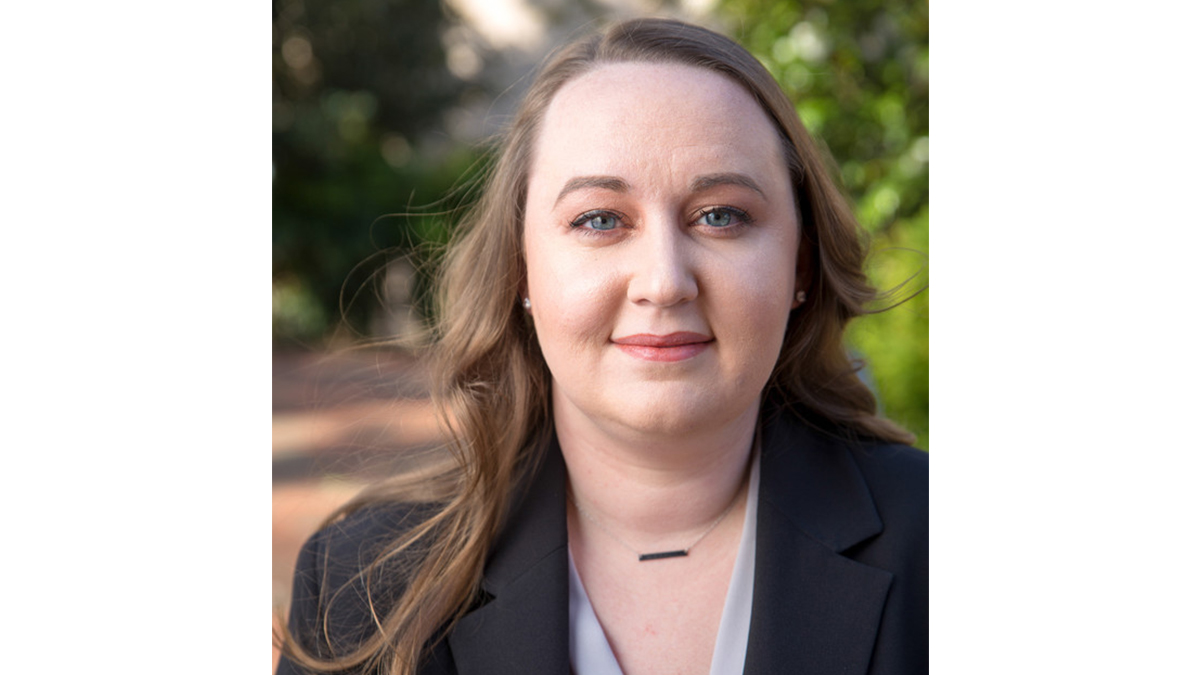Learning to prevent sports-related brain injury
A Carolina graduate student helps athletic trainers recognize invisible injuries and protect athletes from harm.

You’re watching a rivalry basketball game, and your team’s star player falls and hits his head. The game is tied in the fourth quarter. If the player is taken out, the opposing team will surely pull ahead.
You’re screaming at the TV.
Now put yourself in the shoes of the team’s athletic trainer, whose job it is to decide whether to pull him off the court. The player insists he’s OK, but something’s not quite right. The crowd is shouting, and the coach is looking for an answer.
The outcome of the game is at stake, but so is the player’s health.
“It might be the biggest game of the year, and you might have an angry coach, but you have to be able to make an appropriate decision to prevent any further injury,” said Carolina doctoral candidate Melissa Kay, who studies human movement science.
For Kay, a former Division I football athletic trainer who will graduate from UNC-Chapel Hill in May, this scenario is familiar. In the absence of a medical doctor, it often falls to the athletic trainers to recognize “invisible” injuries and protect athletes, despite often intense pressures from coaches, parents and fans.
“You can tape a sprained ankle, but you can’t really see a concussion,” Kay said. “But if an athlete goes back into the game with a concussion, they might get a second injury, which can lead to significant cognitive decline, coma, death, the whole nine.”
Recognizing a gap in sports medicine, Kay set out to fix it with the help of faculty mentors at Carolina’s Matthew Gfeller Center, a leading concussion research center that works to improve the prevention, evaluation management and rehabilitation of sports-related traumatic brain injuries.
To help athletic training students gain confidence in their decisions and improve their ability to communicate those decisions, Kay created a workshop to teach students how to recognize signs of concussions and to communicate health-related decisions in a collaborative way.
“Where I went to school, there was this culture of a hurt athlete being a problem, and that the athletic trainers were the ones making you lose,” she said. “I thought, ‘I don’t want other students to experience this, so how do we better prepare them to be confident in their decision-making and stand up for what’s right?’”
In the workshops, Kay sets up scenarios: a collegiate cheerleader feels dizzy after a fall at a national championship, but she also didn’t eat the morning of the game. Or, a high school football player has six or seven symptoms of a concussion, but his parents want him to play.
Kay asks students to play the roles of athlete, coach, parent and trainer to learn how to navigate the problematic expectations and relationships at play.
Feedback from students was overwhelmingly positive, said Kay, who plans to distribute the workshops to other students across the state and beyond via online modules and, eventually, virtual reality.
And students aren’t the only ones with high hopes for the workshop’s potential. The Graduate School awarded Kay a 2019 Horizon Award for the potential of her research to make a significant contribution to the educational, economic, physical, social or cultural well-being of North Carolina citizens and beyond.
“Melissa’s research will yield impact for athletes across the country, but specifically here in North Carolina due to the large number of both athletic training education programs and the more than 200,000 student-athletes in our state,” said Johnna Register-Mihalik, assistant professor of athletic training and Kay’s faculty advisor.
If her research helps just one athlete stay safe and avoid lifelong health complications, Kay will be happy. But the project is designed to achieve much more than that.
“The goal is to improve the care of these athletes,” Kay said, “and I think there is a large possibility to impact health care in North Carolina as well as nationwide.”




